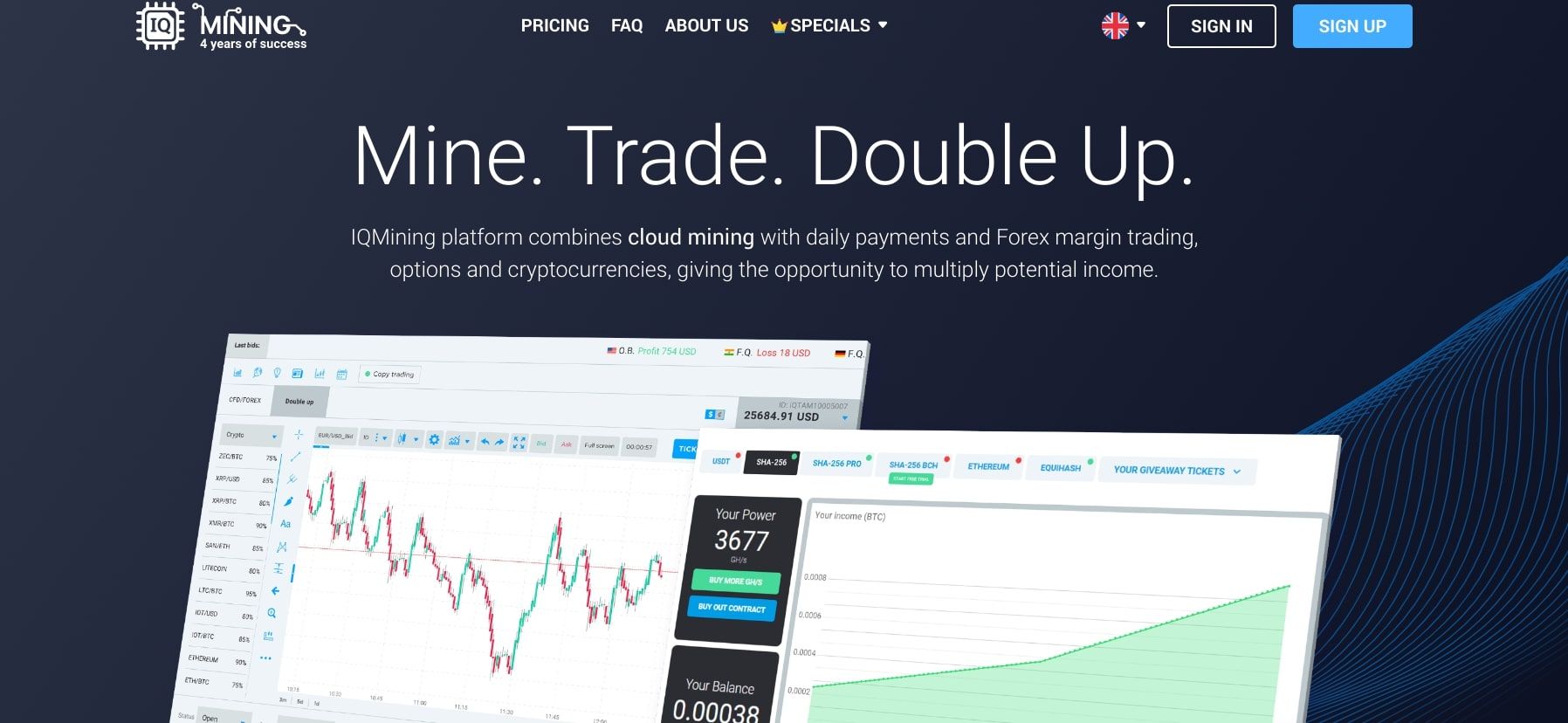As cryptocurrency has flourished, online attackers have been developing more sophisticated ways to trick investors and traders into divulging their personal information. This is certainly the case in the cloud mining market. So, how do crypto cloud mining scams work, and how can you avoid them?
What Is Crypto Cloud Mining?
Some of you may be wondering what cloud mining even is. Is it the same as regular crypto mining? Well, not exactly. A typical cryptocurrency miner needs a specific piece of hardware to mine coins or tokens. This can be something as simple as a CPU, or a specialized unit like an ASIC miner. In any case, hardware is required to solve mathematical equations, mine coins, and verify transaction blocks.
But not everyone can afford to invest in the hardware required to mine. These days, you'll usually need a single GPU, GPU rig, or ASIC miner to successfully mine, which can cost a lot of money. This is where cloud mining comes into play. For those who don't want to incur large upfront mining costs or those with limited tech knowledge, cloud mining can be a cheaper and more straightforward alternative. But how does it work?
Crypto mining websites are run by people who have access to mining hardware. These are usually farms that can harbor huge amounts of hashing power to increase the chance of success. A customer will pay these cloud mining websites a fee to mine for them, meaning they can still earn mining rewards without having to run a full node on their own.
But this kind of model can be very easily exploited by scammers looking to trick users into handing over funds without offering any of the benefits of a legitimate cloud mining service. So, how are crypto cloud mining scams carried out?
What Is a Cloud Mining Scam?
When you pay a fee for Netflix, ExpressVPN, or many other kinds of online services, you will be able to access what you're paying for immediately. However, with cloud mining websites, you're paying a fee to reap a reward that will come later on. Essentially, you're putting your faith in this service to make you a profit.
Because of this, cloud mining sites are often scams. In fact, the large majority of cloud mining services out there are run by cybercriminals, which makes the whole venture incredibly risky. Cloud mining scams now also come in the form of mobile apps, as scammers look for more ways to reach unsuspecting victims.
When you sign up for a cloud mining site, you'll usually have different plans to choose from, all of which differ in pricing and profitability. You'll also typically be able to choose from a number of mining coin options, like Bitcoin or Ethereum, as well as different minimum hash rates. Then you'll need to pay for your mining contract of choice. This payment is what scammers are after.
Mining contracts can range in price massively, from ten or so dollars to a few thousand. So there's a lot of profit to be made by scammers here.
Once the scammer has convinced you enough, and you've made your mining contract payment, it is already too late. It may even take you days or weeks to realize that you've been scammed, as mining rewards can take a while to start coming in. On top of this, if you enter your payment details into a phony cloud mining website, you run the risk of having them stolen and used. This opens up a whole new element of danger, as you may begin seeing funds leaving your bank account without your authorization.
Some cloud mining websites may also be after your wallet's private key. Private keys can be used to access crypto wallets and therefore your funds. If a user isn't aware that a private key must always be kept a secret, they may think nothing of handing it over to a cloud mining website when it's stated the key is needed so that they can receive funds.
There's evidently a lot of damage that can be done through illegitimate cloud mining websites, but there are ways through which you can spot a phony site and keep your data and funds safe.
How to Avoid Cloud Mining Scams
Spotting a suspicious cloud mining site can sometimes be easy. Not all scammers are sophisticated, after all, so some illegitimate cloud mining sites are littered will grammatical and spelling errors. These errors can often be an indicator of a scam website, so keep your eyes peeled for lazy writing.
Additionally, some phony cloud mining sites will offer incredibly high returns in an effort to tempt prospective customers into handing over their cash. While cloud mining can be profitable, note that you're splitting your rewards with other customers, so you likely won't be making huge amounts of money on a regular basis via this venture. On top of this, if the site is offering instant rewards after you sign up, consider it a red flag.
Mining is a long-term game, so the promise of an immediate profit is usually one without merit.
You should also conduct research around your perspective cloud mining service to see if they own a mining farm. Safe cloud mining sites will often provide information about their mining farm to prove their legitimacy. Scam sites, however, will sometimes omit such information, or even make up a farm address. Alternatively, the site could use the address of an existing farm. So, if an address is provided, do a little research around it to see which company the farm is run by, or if the farm exists at all.
You can also check the age of a given provider's website domain to see if they've been operating for as long as they claim. Many scam websites will state they have been operating for a number of years to increase their legitimacy in the eyes of victims. So, try using a domain age checking website like Dupli Checker or Small SEO Tools to verify if a company is as old as they say they are.
Cloud Mining Scams Are Everywhere but Can Be Spotted
Unfortunately, the cloud mining industry is rife with cybercriminals, so it can be hard to steer clear of scams when you're looking to give cloud mining a try. But remaining vigilant and using the tips above, you can weed out phony sites and keep yourself safe from malicious parties looking to get their hands on your funds and data.



